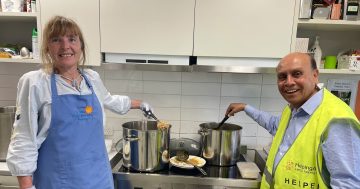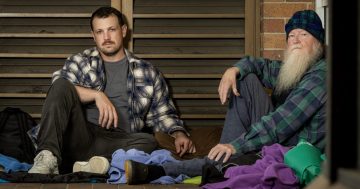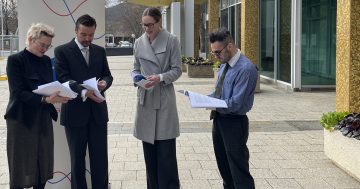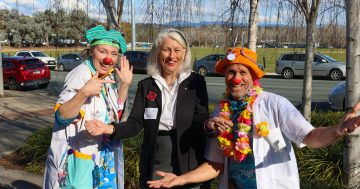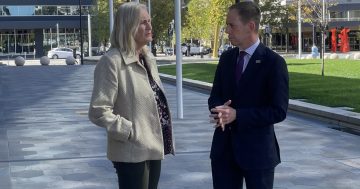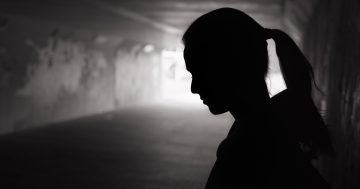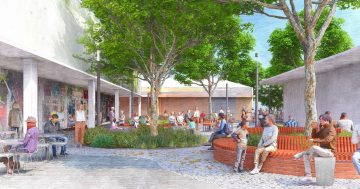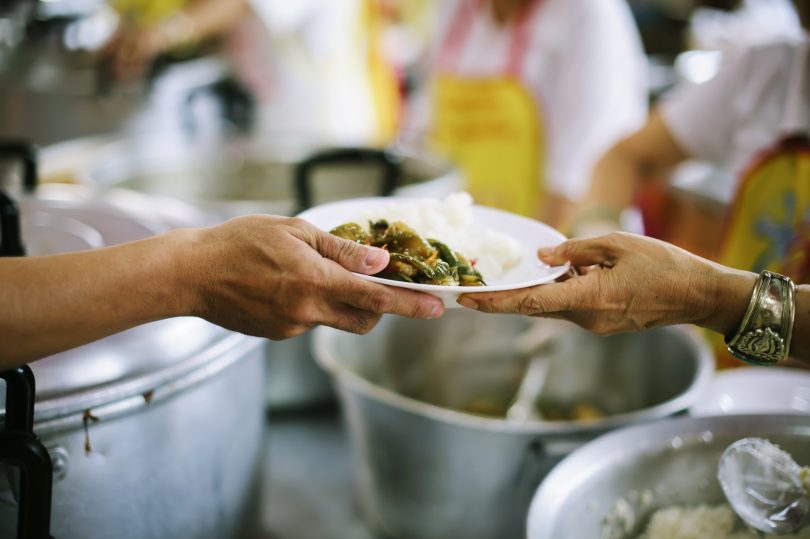
After a tough 2020, many Canberrans will be living by the maxim “charity begins at home”. Photo: File.
For the first time in a long time, Australians have been united by an experience of hardship that has managed to traverse the privilege and prosperity gaps in our community. The pandemic has torn through the country and tipped the balance between wealth and poverty, with many people who were previously financially secure facing a level of vulnerability they may not have imagined possible a year ago.
Although we like to consider ourselves classless in Australia (in the egalitarian sense, not the lack of dignity sense), the statistics show that economic inequality absolutely exists.
According to the Australian Council of Social Services, “someone in the highest 20 per cent of the income scale lives in a household with almost six times as much income as someone in the lowest 20 per cent of the income scale”.
In Canberra, this inequality can be even more difficult to see, thanks to what I like to call ‘affluence-washing’ – how the vision of our city that’s popularised in the mainstream doesn’t account for the significant pockets of disadvantage in the ACT.
The ACT Council of Social Services released a report in October this year, noting that almost 40,000 Canberrans live in households that are among Australia’s most disadvantaged. And since COVID-19, the number of people living in poverty has increased from just under 30,000 people to just over 38,000 people
It can be hard to picture this scale of inequality if you’re part of the lucky majority of Canberrans who enjoy the best parts of our awesome city-state. The visual reminders of hardship are often limited to a few beggars outside the Canberra Centre or local shops, perhaps the occasional encounter with someone sleeping rough in a public place. These extreme examples mask the larger swathe of Canberrans who live in the terrible grey area between hardship and what we consider poverty to look like.
These are the people who have a roof over their heads but worry daily about whether they can afford next fortnight’s rent payment. The people who can feed their families, but on a budget so tight Christmas presents are an illusion. The people who can only afford to travel between work and home because their petrol money or bus fares are precious and have to be prioritised. These are people who are clinging to their foothold out of poverty with the tips of their toes, one small shove away from the abyss.
The story we tell of Canberra to the world is one of affluence and prosperity. Of a city of progressive, highly educated individuals who are fitter, smarter, richer than the rest of Australia. We like to celebrate our cool little capital being lauded as one of the best cities in the world to visit, but do we do enough to make it the best city in the world to live in for all Canberrans?
Affluence-washing makes it harder for Canberrans in need to access support. Not only is Canberra not considered an area of need when it comes to qualifying for some federal grants, but there is also a sense of shame in admitting need when you’re told everyone around you is prosperous.
Christmas is usually a time of giving – that’s a cliché that rings true for a reason. Charities can generally expect an influx of donations at this time of the year. But in conversations I’ve had with friends this year, there isn’t the usual appetite for charity.
As one friend pointed out, many Australians are doing it tough in 2020, and people need to focus on their own families before helping strangers, as blunt as that might sound.
I understand this, and I know that for all of us 2020 has been stressful and draining. But I’m also really aware that the stress I feel as a middle-class, full-time employed person is wildly different from the overwhelming stress of Canberrans suffering financial insecurity right now.
Yes, there was a brief time when my income wasn’t secure. But between my siblings, in-laws, parents, and my partner’s income, I didn’t for a second fear I wouldn’t have a roof over my head. Yes, the pandemic impacted the rhythm of my daily life – but more hours spent at home rather than out socialising is barely a disruption compared to those who had to close their businesses for months on end, without any certainty for the future.
In Canberra especially, being conscious of my privilege is crucial because it would be easy to become complacent to it when it’s rare to be confronted by tangible reminders of inequality in my daily life.
But even as I love the amazing quality of life I have in affluent Canberra, I know that that experience is not universal across our city.
So this Christmas, despite my own feelings of stress and fatigue, I am still going to do my usual charitable donations, and seek other ways to support the less fortunate, as I do every year. If anything, empathy and charity are needed this year more than ever.













